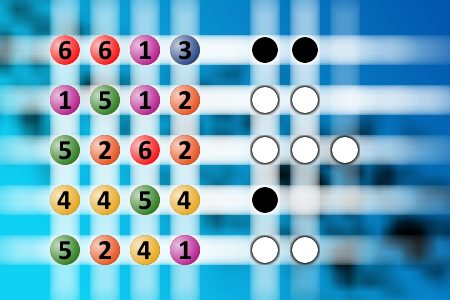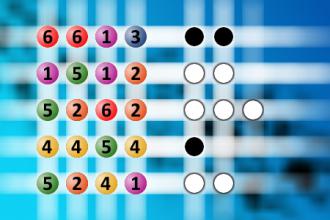What a winning combination?
The computer chose a secret code (sequence of 4 digits from 1 to 6). Your goal is to find that code. Black circles indicate the number of hits on the right spot. White circles indicate the number of hits on the wrong spot.
Three nurses sadly pass awa...
Three nurses sadly pass away. They rise up into heaven, and there they approach the gatekeeper to plead their case for entering paradise.
So the keeper points to the first nurse, who says: “I worked in an emergency room. I treated many people, and always did my best to help. And although sometimes we would lose patients, I still think I deserve to enter.”
The gatekeeper glances at her file and admits her to heaven.
The second nurse then says, “I used to work in the operating room, assisting surgeons. It was a lot of stress, and we lost many people, but I always did my best.”
The keeper glances at her file and motions her to enter.
“And you?” He asks the third nurse.
“I was a case manager for an HMO. I worked with thousands of patients.”
The gatekeeper takes a long and careful look at her file. He pulls out a calculator and starts entering digits quickly, looking back from time to time at the woman’s file. After a few minutes like this, the keeper looks up, smiles at her and says: “Congratulations! You’ve been admitted to heaven… for five days!”

